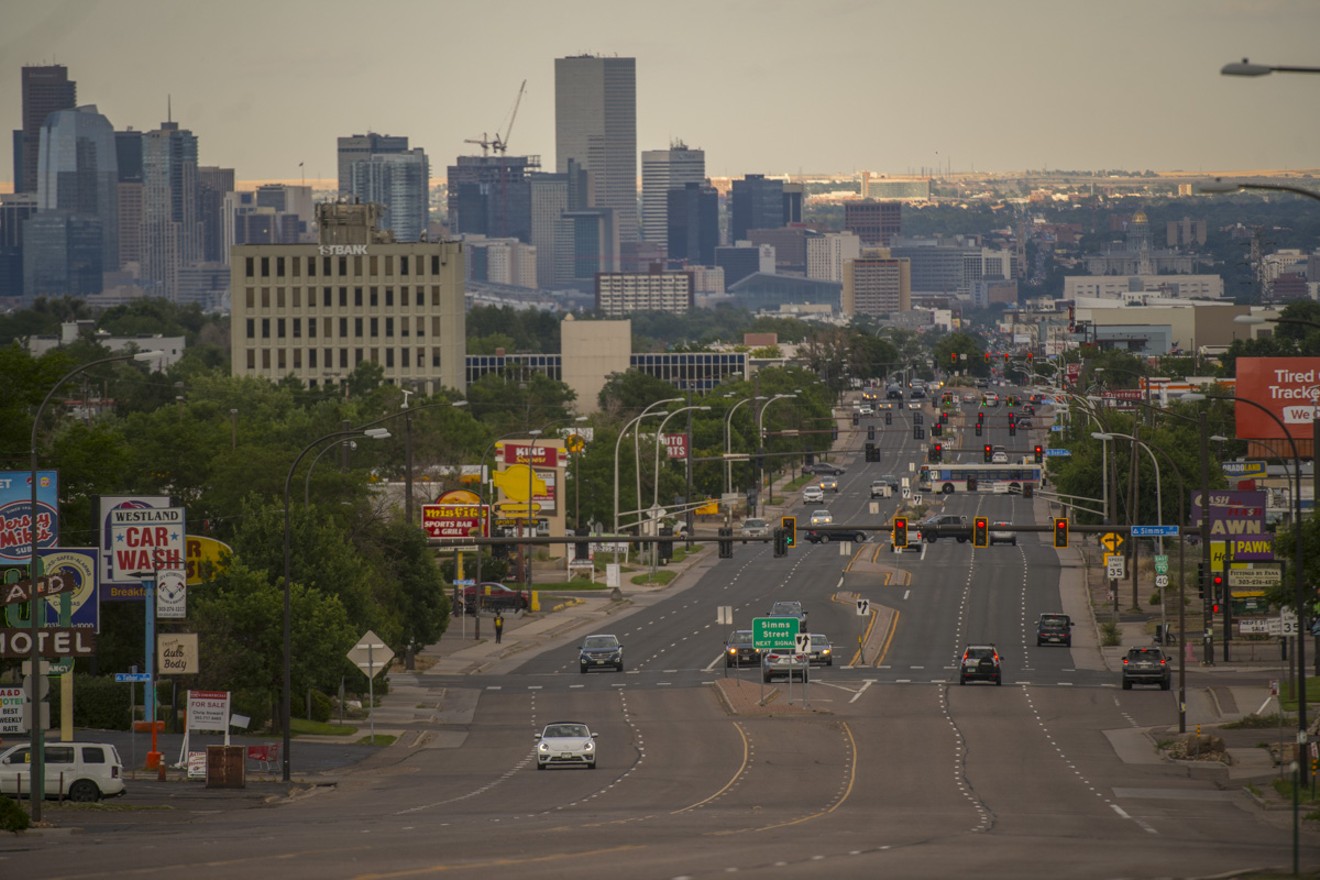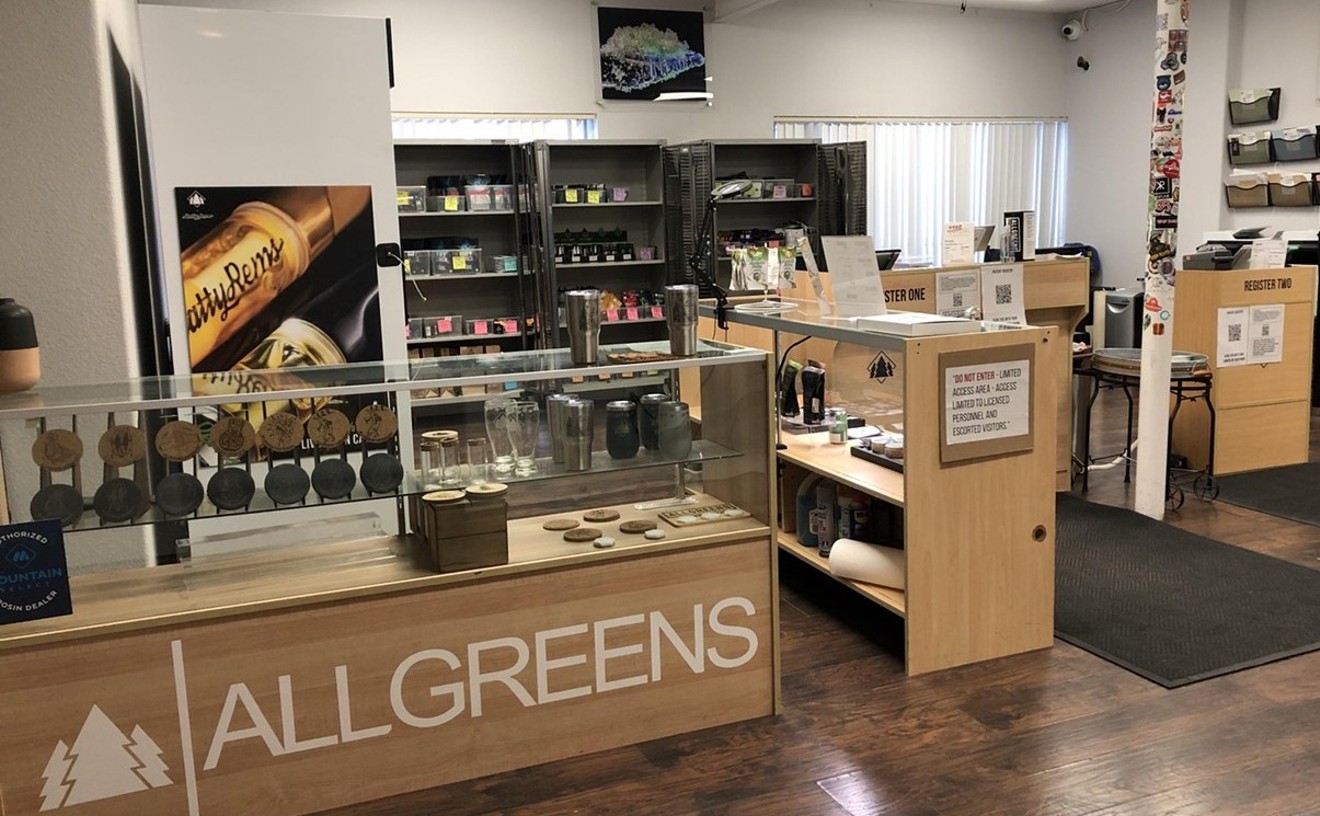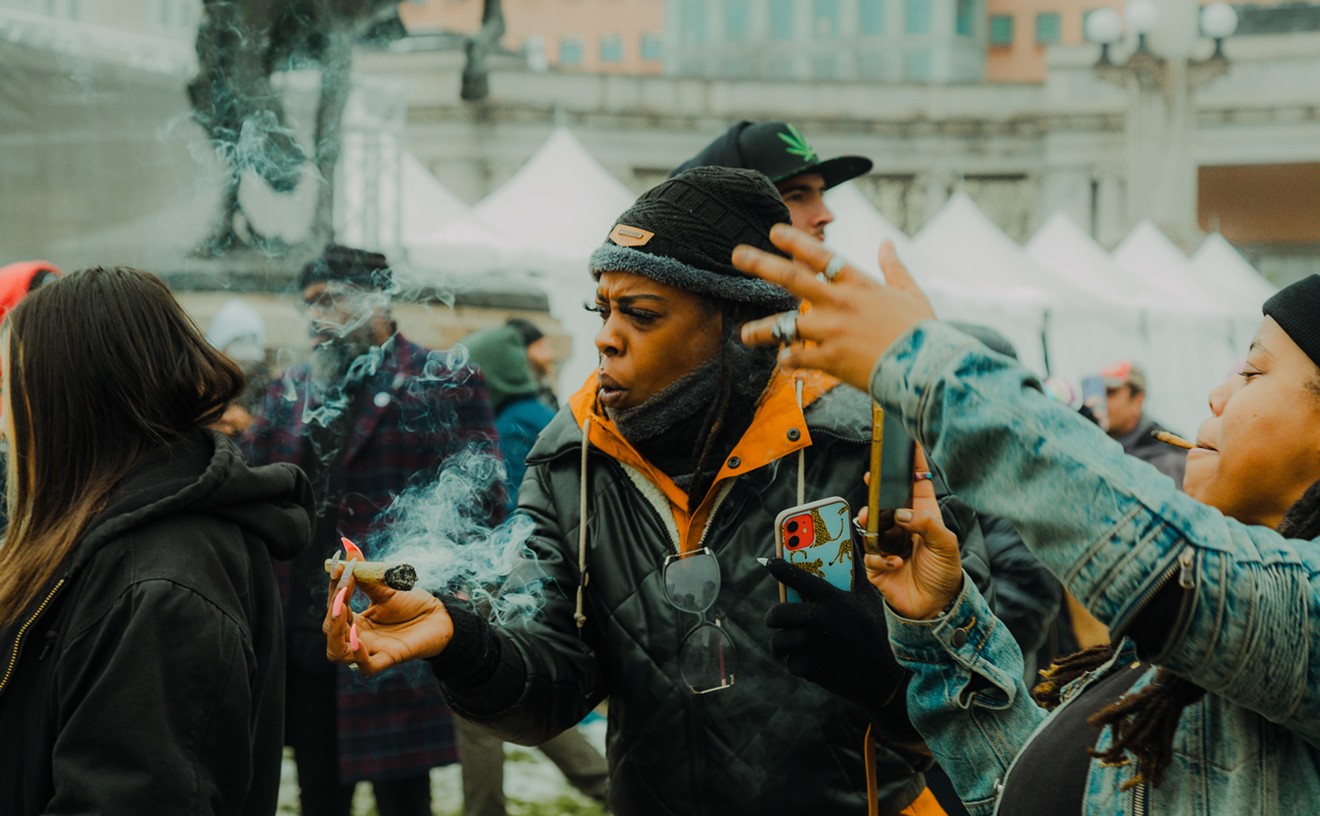Metro and rural communities alike started considering new ways to spark their budgets just as the brains behind the marijuana industry were preparing to take advantage of the expected high turnout in November's national election. Not all of the efforts to get cannabis measures on the ballot were successful — both Loveland and Colorado Springs chose against voting on recreational sales — but not every municipality required that pot-related proposals go to a vote, either. In Boulder, for example, pre-existing language in the town code allowed medical marijuana delivery to begin without a public vote or even a city council decision.
Beyond next week's ballot, a handful of Colorado towns are considering making moves on new marijuana businesses before the end of the year. Here's a look at the upcoming action:
Denver
As the state's marijuana business capital, Denver has led the way for many cannabis regulatory guidelines. The city has been taking its time with marijuana delivery and hospitality options, though, creating a licensing work group of marijuana business stakeholders to advise Denver City Council, which will ultimately decide whether Denver opts into marijuana delivery or expands the city's maligned hospitality program...or both. Socially equitable licensing for those harmed by the War on Drugs loomed over every Marijuana Licensing Work Group meeting. After a final meeting in September, the MLWG plans to send its official recommendations to councilmembers at some point in November, according to the Denver Department of Excise and Licenses.
Aurora
Aurora City Council isn't waiting for Denver to take on marijuana delivery, and nearly voted on the issue in August before deciding it needed to consider more information on delivery security and socially equitable licensing. Now the third-largest city in Colorado looks primed to allow recreational marijuana delivery (there are no medical marijuana dispensaries in Aurora) by 2021, barring a change in direction on the council. The council's Amendment 64 Ad Hoc Committee will review social equity proposals to the delivery ordinance during a November 4 meeting, with the full council expected to hold the first delivery reading and vote during a November 16 study session. If the proposal passes that, it could go to a second vote on December 7 and would be implemented by January.
Marijuana hospitality could be next for Aurora. During a recent A64 meeting, the city's Marijuana Enforcement Division presented a list of suggested guidelines for any ordinances that would license social pot consumption, including a restriction that would only allow dispensaries to apply for hospitality licenses. No official measure has been drafted yet, but the AMED and local marijuana stakeholders will be discussing pot hospitality during city meetings later this year, according to AMED director Robin Peterson.
Lakewood
After allowing medical marijuana sales for a decade, Lakewood could finally let the retail side inside its borders if a measure on the November ballot gains enough support. Proponents submitted 6,671 official signatures (over 1,000 more than required) in support of the question; if approved, the ordinance would legalize recreational marijuana dispensaries and production facilities, with many of the details to be crafted by the city. According to a poll paid for by the proponents, 73 percent of Lakewood voters support recreational marijuana sales, with all five districts reporting at least a 68 percent approval rate. Lakewood residents have voted down recreational marijuana before, though, with Colorado Christian University a vocal opponent.
Littleton
The same group pushing recreational marijuana in Lakewood is spearheading a similar ballot campaign in Littleton. Like Lakewood, Littleton only allows medical marijuana dispensaries, but residents have shown a stronger desire for recreational businesses: In November 2012, 51 percent of Littleton voters approved Amendment 64, the state ballot measure that legalized recreational marijuana, while a recent poll by recreational pot proponents found that 69 percent of Littleton residents now support recreational marijuana sales. An initiative with more than the required 4,419 petition signatures was submitted to Littleton City Council in August and made the November election ballot.
Buena Vista
Although Buena Vista's population is less than 3,000, the small town in Chaffee County is a popular tourism destination for hikers, campers and rafters. Buena Vista only allows medical marijuana sales right now, with one dispensary currently in operation, but voters could open the community up to recreational pot shops by approving November ballot questions proposing retail marijuana sales and an accompanying sales tax. Voters rejected a similar ballot proposal in 2016, but the Buena Vista Town Board of Trustees became interested in revisiting the issue as a route for more local tax revenue.

Broomfield voters will ponder recreational dispensaries in November.
Flickr/Jeffrey Beall
Although several towns within Adams County allow recreational marijuana sales and businesses, unincorporated Adams County does not. That started to change earlier this month, though, when Adams County Commissioners approved a new licensing lottery system for recreational marijuana stores and hospitality businesses. While several industry groups were pushing for more licenses, they were unsuccessful. Ultimately, five hospitality licenses and one recreational sales permit were issued — after the county commissioners set aside several licenses for social equity applicants.
Broomfield
In November, voters in the City and County of Broomfield will decide whether to finally welcome the commercial marijuana industry after Broomfield City Council approved a proposed special sales tax on retail marijuana and moved that proposal to the ballot. After more than a decade of banning marijuana dispensaries and commercial grows, the council will let a moratorium on the industry expire in February. But in order for such businesses to legally operate, they need to be taxed and licensed at the local level — and under the Colorado Taxpayer Bill of Rights, the new tax must first be approved by Broomfield voters. In November 2012, over 53 percent of Broomfield residents voted in favor of Amendment 64.
Future recreational pot sales in Broomfield hit an early speed bump in early October, however, when the city discovered that language in the ballot measure had incorrectly predicted the maximum amount of tax revenue that retail marijuana sales would earn; the actual haul will be less. Despite the error, the Broomfield City and County Attorney’s Office believes the measure's current wording did not need to be revised before the election.
Dillon
The Dillon Town Council approved marijuana consumption in September, with the town's three current dispensaries now allowed to apply for hospitality licenses. The licenses would only be available to dispensaries, which could create lounge areas for pot consumption. At least one local store, Altitude Organic Cannabis, has plans to pursue the concept, according to the Summit Daily.












